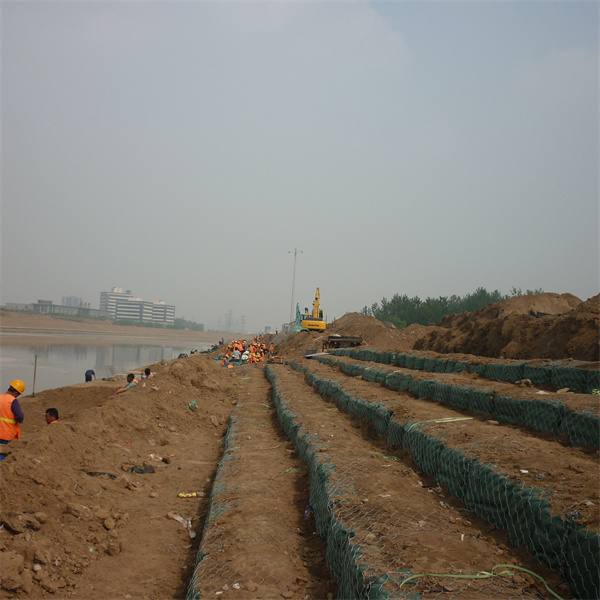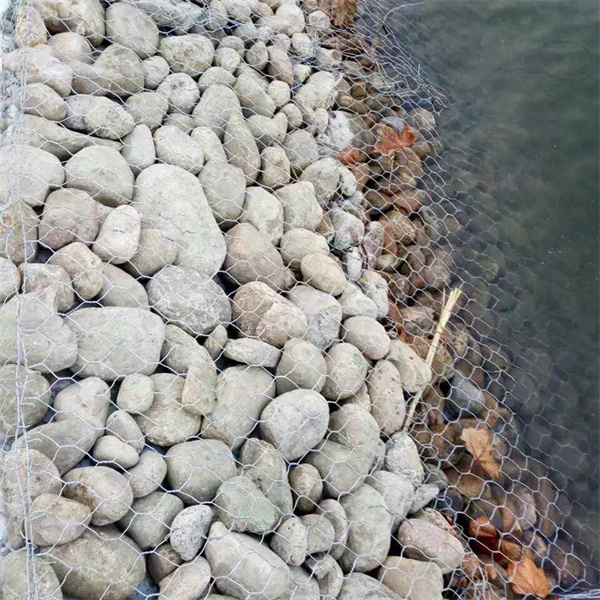ഫെബ്രു . 13, 2025 03:32 Back to list
Galfan Coating Hexagonal Wire Gabions for retaining wall
Gabion walls, formed by stacking wire-caged containers filled with stones, have emerged as both a functional and stylish option for many landscaping and construction needs. Whether preventing soil erosion or adding an architectural statement to a property, their popularity continues to grow. However, like any construction method, they come with their unique set of advantages and disadvantages.
3. Space Consumption Gabion walls are not the most space-efficient option, as their thickness can take up considerable space. This can be a drawback in small yards or properties with limited area where maximizing usable space is a priority. 4. Initial Cost Concerns The upfront investment for a gabion wall may be higher than other traditional methods like timber or basic stone walls. Although they offer long-term savings due to their durability and minimal maintenance, the initial outlay can be prohibitive for some budgets. 5. Difficulty with Precise Structures Creating precise angles or curves can be challenging with gabion walls. While they are excellent for organic shapes and natural contours, more formal design requirements might be harder to achieve without expert intervention and additional costs. Expert Insight When considering gabion walls, it's crucial to evaluate specific project needs and environmental conditions. Consulting with a landscape architect or a civil engineer can provide insight into the most suitable materials and construction methods, leveraging their expertise to optimize design and performance. Moreover, sourcing high-quality materials is vital to building a lasting gabion wall. Choosing durable wire mesh and selecting appropriate stone filling based on local conditions will contribute significantly to the wall's effectiveness and longevity. Linked with this is the importance of professional installation, or at the very least supervision, to ensure the structure's stability and appearance. Trust in Existing Installations Gabion walls have been continually trusted in various large-scale civil engineering projects worldwide, reflecting their stability and cost-effectiveness. This track record builds their authoritative status within the construction industry, reinforcing their reliability when appropriately applied. For consumers and developers intrigued by the sustainable and practical benefits of gabion walls, balancing their advantages with their potential drawbacks allows for informed decision-making. With thoughtful planning and expert guidance, gabion walls can serve as a robust, eco-friendly, and aesthetically pleasing feature in diverse applications.


3. Space Consumption Gabion walls are not the most space-efficient option, as their thickness can take up considerable space. This can be a drawback in small yards or properties with limited area where maximizing usable space is a priority. 4. Initial Cost Concerns The upfront investment for a gabion wall may be higher than other traditional methods like timber or basic stone walls. Although they offer long-term savings due to their durability and minimal maintenance, the initial outlay can be prohibitive for some budgets. 5. Difficulty with Precise Structures Creating precise angles or curves can be challenging with gabion walls. While they are excellent for organic shapes and natural contours, more formal design requirements might be harder to achieve without expert intervention and additional costs. Expert Insight When considering gabion walls, it's crucial to evaluate specific project needs and environmental conditions. Consulting with a landscape architect or a civil engineer can provide insight into the most suitable materials and construction methods, leveraging their expertise to optimize design and performance. Moreover, sourcing high-quality materials is vital to building a lasting gabion wall. Choosing durable wire mesh and selecting appropriate stone filling based on local conditions will contribute significantly to the wall's effectiveness and longevity. Linked with this is the importance of professional installation, or at the very least supervision, to ensure the structure's stability and appearance. Trust in Existing Installations Gabion walls have been continually trusted in various large-scale civil engineering projects worldwide, reflecting their stability and cost-effectiveness. This track record builds their authoritative status within the construction industry, reinforcing their reliability when appropriately applied. For consumers and developers intrigued by the sustainable and practical benefits of gabion walls, balancing their advantages with their potential drawbacks allows for informed decision-making. With thoughtful planning and expert guidance, gabion walls can serve as a robust, eco-friendly, and aesthetically pleasing feature in diverse applications.
Latest news
-
Why PVC Coated Gabion Mattress Is the Best Solution for Long-Term Erosion Control
NewsMay.23,2025
-
Gabion Wire Mesh: The Reinforced Solution for Modern Construction and Landscape Design
NewsMay.23,2025
-
Gabion Wall: The Flexible, Seismic-Resistant Solution for Modern Landscaping and Construction
NewsMay.23,2025
-
Gabion Wall Solutions: The Durable, Decorative, and Affordable Choice for Every Landscape
NewsMay.23,2025
-
Gabion Basket: The Durable and Flexible Alternative to Traditional Retaining Walls
NewsMay.23,2025
-
Gabion Basket: The Proven Solution for Slope Stability and Flood Control
NewsMay.23,2025
-
Versatility of Chain Link Fence Gabion
NewsMay.13,2025
Manufacturer of Silk Screen Products
QuanhuaProvide high-quality products and services to global customers.






